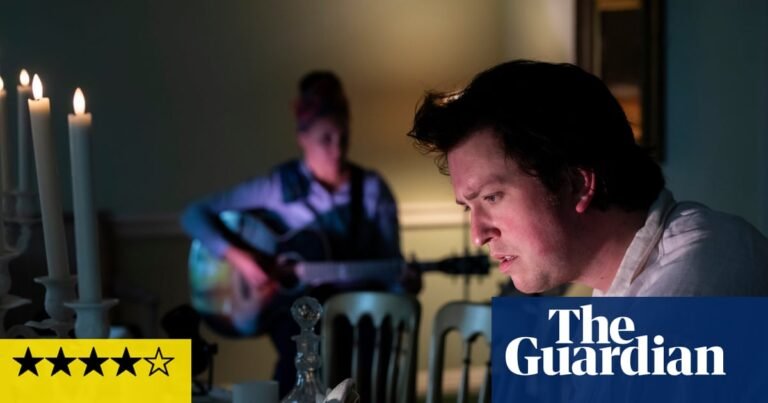We are sitting around a table in the sedate surroundings of the Georgian House, the Robert Adam-designed townhouse run by the National Trust for Scotland. James Clements, playing the part of Robert Burns, says something about the weather, and suddenly a streak of lightning cuts down the length of the table top. It has a gash down the middle for that very purpose.
It is a sign of the attention to detail in Cora Bissett’s excellent production. What could have been a by-the-numbers tribute to Scotland’s national poet is altogether more subtle, imaginative and contentious. The long, undulating table, designed by Jenny Booth and cleverly lit by Elle Taylor, continues to play an unexpected part: Clements appears from beneath a domed plate cover in a scene of hungover contrition, while a cutlery boat sets sail under its own steam towards the West Indies.
Oh yes, the West Indies. One of the inconvenient truths about this people’s poet, the man who wrote the egalitarian A Man’s a Man for a’ That, is that it was only his newfound career as a published writer that stopped him heading to Jamaica to work in the slave trade.
Clements’s script, drawing on private letters and recently digitised historical archival material, plus the voices of modern commentators, does not gloss over this, nor the poet’s womanising. Rather, it presents a rounded picture of a contradictory man who could write tender verse one minute and abandon a pregnant woman the next.
Burns is embodied with gusto and rounded Ayrshire vowels by Clements, accompanied by Lisa Rigby, singing sweet renditions of favourites such as Ae Fond Kiss on guitar and shruti box. It works as both a primer to the short life of this farmer turned celebrity and a knotty study of his politics, compromises, artistic enthusiasms and colourful love life.


